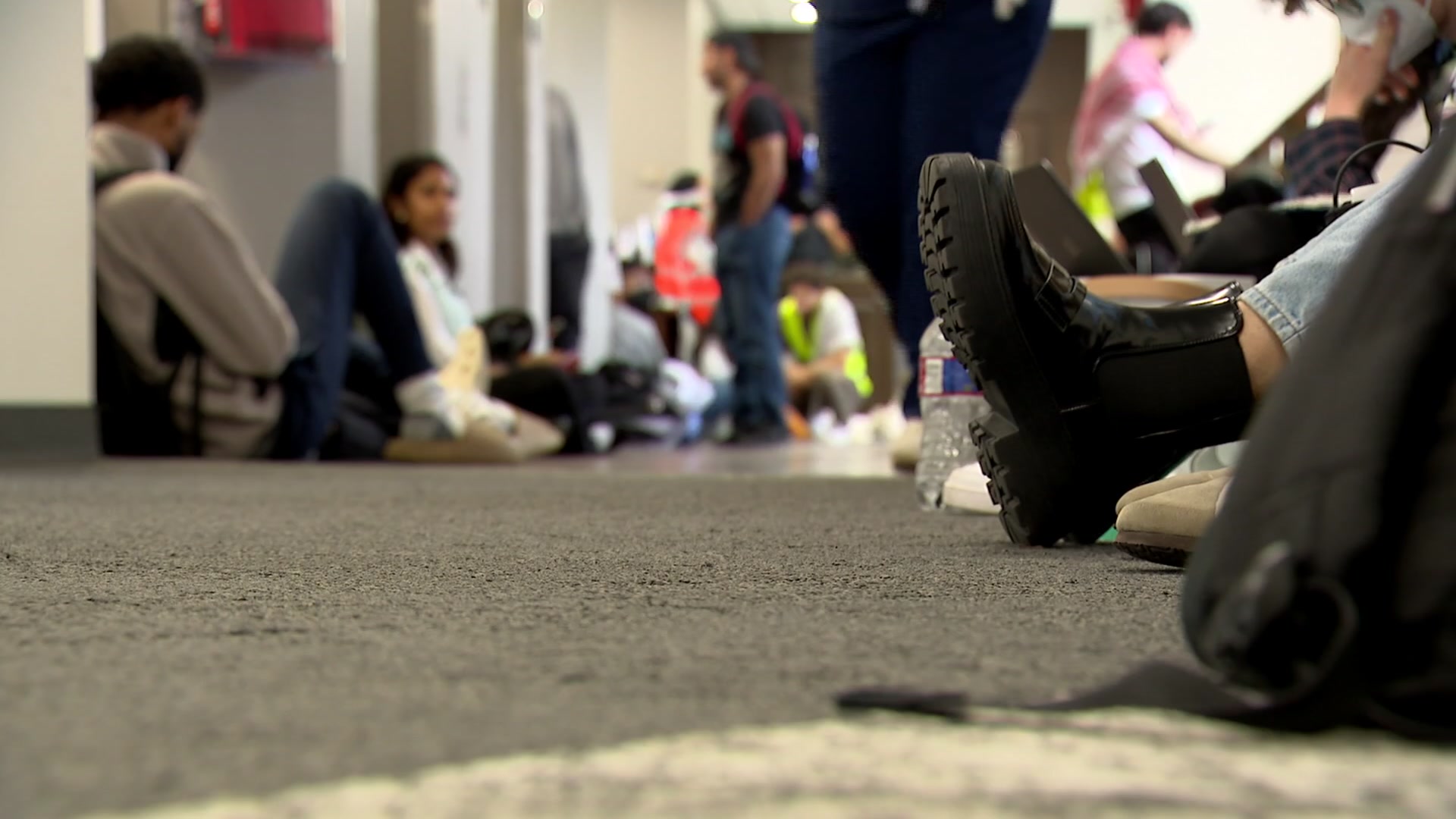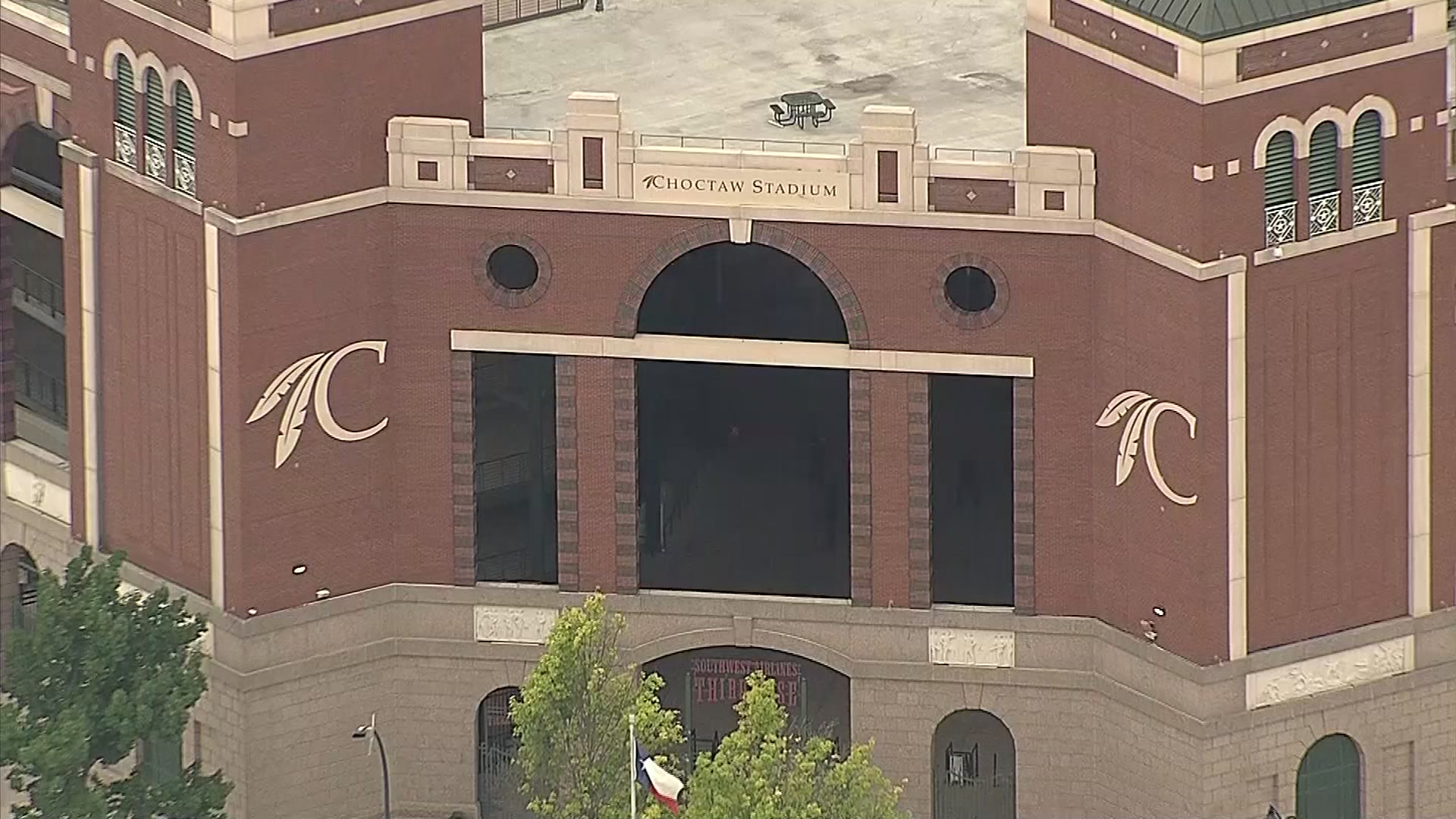If you plan to fly this summer, get ready. The Transportation Security Administration is preparing for a season so busy that passenger volumes will exceed even 2019 levels.
The TSA warns travelers will need to pack more patience and more planning into traveling than ever before.
Officials predict there will be more than 3 million passengers screened in a single day at checkpoints across the country at some point this summer.
That would be an all-time summer travel record.
Get DFW local news, weather forecasts and entertainment stories to your inbox. Sign up for NBC DFW newsletters.
David Pekoske, the TSA administrator, went over the details during a roundtable alongside other airline industry leaders at DFW Airport on Tuesday.
Leaders included Sean Donohue, Dallas Fort-Worth International Airport CEO, and top representatives from Airlines for America, Airports Council International – North America, American Association of Airport Executives, National Air Carrier Association, and the Regional Airline Association.
“Daily passenger volumes at TSA checkpoints show that people are traveling again, and TSA is ready for their return,” said Pekoske.
Local
The latest news from around North Texas.
The summer travel season technically begins in late May and extends beyond Labor Day weekend, covering three months and four major holidays. This includes Juneteenth as the newest federal holiday, which will be recognized on Monday, June 20.
"As we look at the summer travel period, we have taken every step in TSA and I know my partners have taken every step to make sure that we're ready and prepared for the summer,” said Pekoske. "That's not to say that there won't be hiccups along the way. Those things will happen but we will do everything we can to recover quickly."
To help with the volumes, the TSA said it has deployed two new scanning technologies – Credential Authentication Technology (CAT) and Computed Tomography (CT) scanners.
Both will improve identification verification, and in some airports, enabling digital identification verification at the Travel Document Checker podium and the scanning capabilities for carry-on bags, according to the TSA. Both of these technologies are supposed to enhance security and reduce physical contact within the checkpoints to keep lines moving.
The CT units provide TSA officers the ability to review a 3D image of passengers’ bags and reduce the need to search the bag’s contents. Passengers screened in security lanes with CT units do not need to remove their travel-size liquids bag or electronics.
Right now, the TSA is reporting staff of 47,500 agents across the country, with a team of agents designated to travel to airports where more help is needed amid the labor shortage.
“We continue to recruit, retain, train and equip a highly-skilled workforce, and we work continuously with our airport and airline partners to anticipate and prepare for higher traffic patterns,” said Pekoske.
Travel in the next few months could burn up your budget.
According to economists at booking site hopper.com, the average cost of a domestic flight will reach around $420 this summer.
Despite demand exceeding 2019, there are fewer seats in the air now compared to back then because of the labor shortage. The airlines don't have the staff to add more flights and many have already reduced their schedules to avoid delays and cancellations.
Hotel rates are also rising by more than 30%.
TSA TRAVEL TIPS
For those who choose to travel this summer, the TSA is offering simple tips to get through the checkpoints quickly and efficiently:
Tip 1: Face masks are optional, but recommended. The Centers for Disease Control and Prevention recommends face masks for passengers aged 2 and older in indoor areas of public transportation and transportation hubs as an effective precaution for those who seek to avoid exposure to COVID in higher-risk public spaces. CDC provides health recommendations for domestic travel during COVID-19 and international travel on its website at CDC.gov.
Tip 2: Pack smart; start with empty bags. Airline passengers who pack for travel with empty bags are less likely to bring prohibited items through a TSA checkpoint. Technology and modifications help reduce the need for physical contact with TSA officers, but those who take the time to come prepared for the TSA checkpoint are far more likely to avoid delay and physical contact. Check for prohibited items by using the “What Can I Bring?” page on TSA.gov.
Tip 3: Know before you go. Airports, like highways, have high traffic surges and construction delays. Plan to arrive at the airport in plenty of time to check in, check bags, and complete security screening in time to avoid stressful sprints to the departure gate. At the TSA checkpoint, have a valid ID card readily available and follow the liquids rule of 3.4 ounces or less, except for hand sanitizer, which has a temporary 12-ounce limit in carry-on baggage.
Tip 4: Contact TSA for help if there are questions or concerns. Those who are preparing to travel and may have special circumstances, considerations or general questions about airport screening can get live assistance by tweeting questions and comments to @AskTSA or via Facebook Messenger, weekdays from 8 a.m. to 10 p.m. EDT and on weekends/holidays from 9 a.m. to 7 p.m. EDT. You can also call the TSA Contact Center at 866-289-9673.
TSA also offers TSA Cares, a helpline for travelers with disabilities, medical conditions and other special circumstances. You may submit a request for assistance by calling TSA Cares at 855-787-2227, weekdays from 8 a.m. to 11 p.m. and on weekends/holidays from 9 a.m. to 8 p.m. TSA Cares are open 365 days a year. Passengers may also use the TSA Cares form available on the TSA website which can be found at https://www.tsa.gov/travel/passenger-support.
Tip 5: Enroll now in TSA PreCheck® to “Travel with Ease.” By enrolling in TSA PreCheck, airline passengers can avoid removing shoes, belts, liquids, food, laptops and light jackets at the TSA checkpoint. Most new enrollees receive their known traveler number within five days, and membership lasts for five years. In April, 94% of TSA PreCheck passengers waited less than 5 minutes at the checkpoint.
For additional information about security screening or more travel tips before a summer trip, click here.



